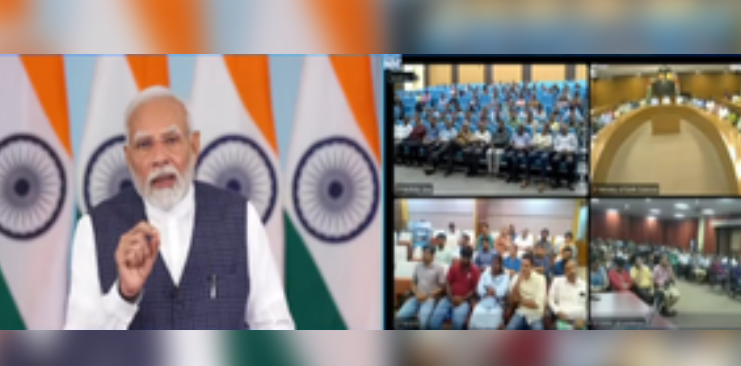Technology
PM Modi launches indigenously developed Param Rudra Supercomputers

New Delhi, Sep 26
Showcasing India's technological prowess, Prime Minister Narendra Modi on Thursday launched three Param Rudra supercomputers worth Rs 130 crore and developed indigenously as part of the National Supercomputing Mission.
The three supercomputers have been deployed in Pune, Delhi, and Kolkata to support cutting-edge scientific research.
"With Param Rudra Supercomputers and HPC system, India takes significant steps towards self-reliance in computing and driving innovation in science and technology,” PM Modi said while launching the supercomputers via video conferencing.
The Prime Minister also launched a High-Performance Computing (HPC) system for the fields of weather and climate.
Addressing the scientific community, PM Modi said there is no sector or industry which does not rely on technology and high-computing capability. He added that in this sphere, India's share "should not be in bits and bytes but in terabytes and petabytes".
"Therefore, this achievement proves that we are moving in the right direction at the right pace," said the Prime Minister.
With the PARAM supercomputer, the Inter-University Accelerator Centre (IUAC) will boost research in material science and atomic physics in New Delhi while the S.N. Bose Centre in Kolkata will focus on areas including physics, cosmology, and earth sciences.
Meanwhile, the Giant Metre Radio Telescope (GMRT) in Pune will use the supercomputer to explore astronomical phenomena such as Fast Radio Bursts (FRBs).
According to the government, the Param Rudra supercomputer incorporates the latest cutting-edge hardware and software technologies. A significant portion of its components were manufactured and assembled in India.
Param Rudra is capable of handling complex calculations and simulations at a very high speed. These homegrown and developed supercomputers are prime examples of India's technological advancements. These are used for research in fields such as weather forecasting, climate modelling, drug discovery, materials science, and artificial intelligence (AI).
The country’s National Supercomputing Mission (NSM) has been set up to provide the country with supercomputing infrastructure to meet the increasing computational demands of academia, researchers, MSMEs, and startups.



































